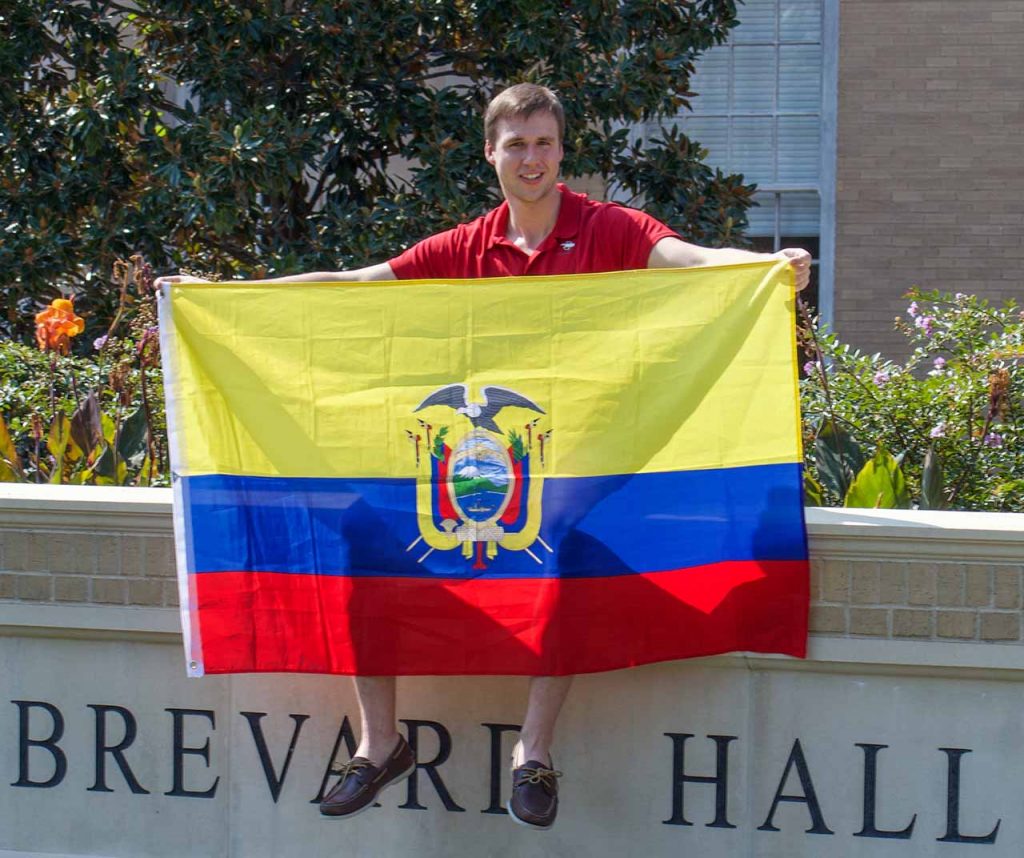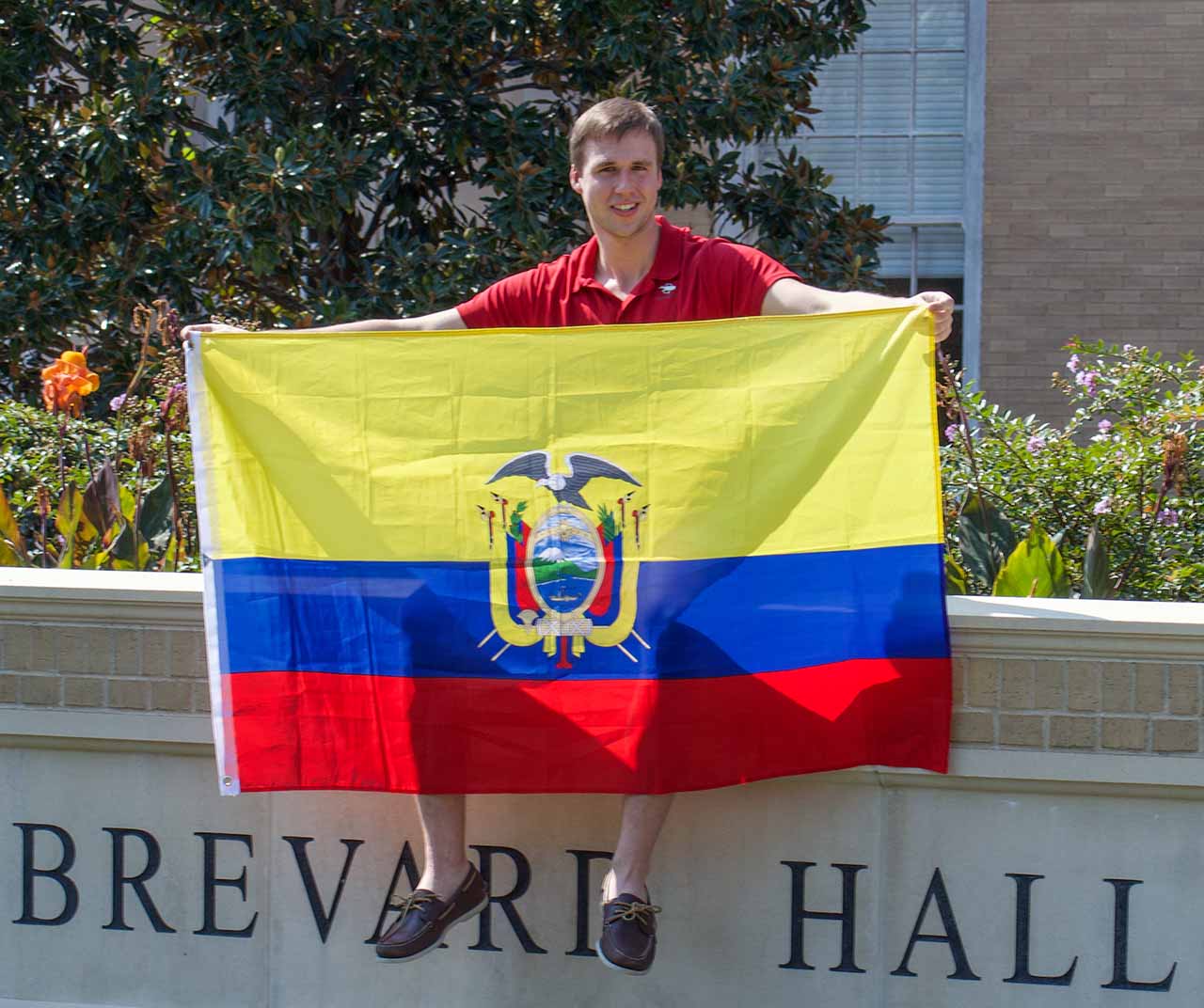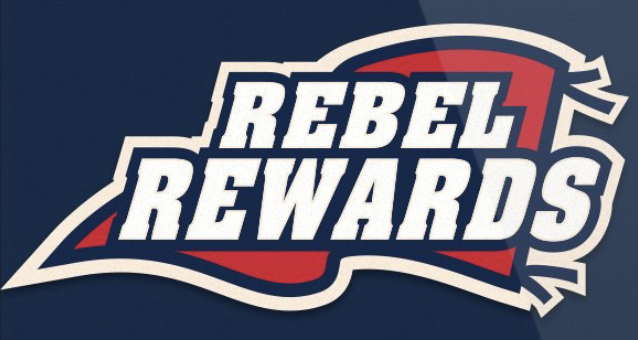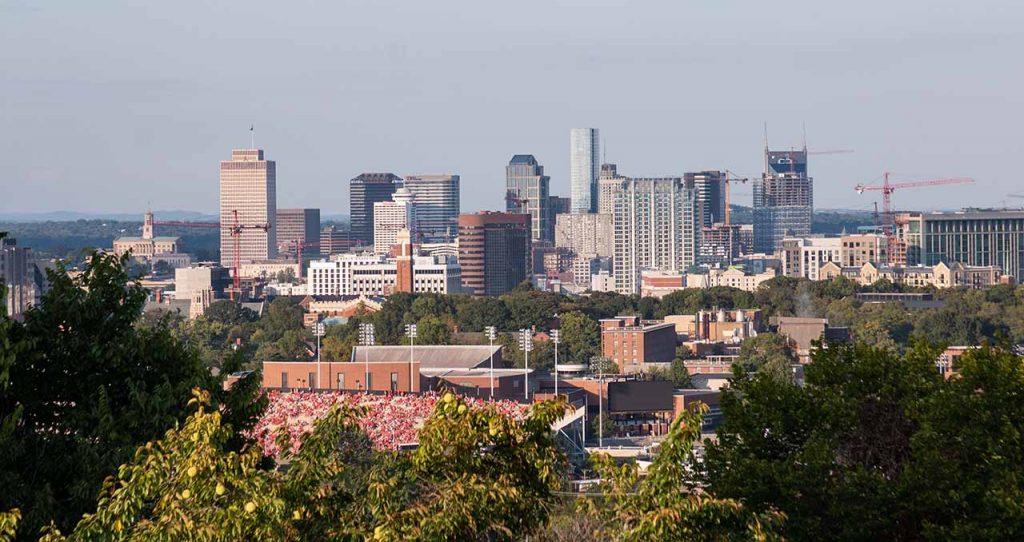
The Ole Miss Engineers Without Borders are investing in a new project that’s saving lives: bringing clean water and accessible wells to a village in Ecuador.
The village, Veinticinco de Diciembre, sits between 12,000 and 15,000 feet above sea level, and is cold, arid and remote. Not to mention the area is volcanic, and when volcanoes erupt, they cover the ground with a thick, super hard, densely packed rock layer called tuff. It’s all over the village.
This was going to be quite the task. With a potential village selected, it was time to get boots on the ground for a survey.
Olivia Wagg, the current Ole Miss EWB chapter president, was a participant in the first trip that took place in May 2018 to conduct a social survey of the town.
“They don’t really understand the difference between drinking water, gray water and black water,” Wagg said. “A lot of them literally go to the bathroom outside, all their animals go to the bathroom outside, and then they’re collecting water downstream of that.”
The families averaged two trips to the well daily, totaling around two hours each day, where they collected 45 liters of water per trip.
In addition to difficult access to the water, the environmental conditions of the area presented another unique problem. Wagg said that children’s cheeks are raw because of the severe wind and the constant cold.
In combination with the town’s lack of access to clean drinking water, this causes many of these children to get bacterial and parasitic infections in these open wounds, with around five kids a year having to go to the parish hospital for bacterial growths.
This is a major health issue for the town, and one that EWB saw as reason enough to focus on creating a sustainable and readily accessible water source.
After conducting a social survey, it was determined that this was going to be the new focus of the club. It was time to move on to monitoring the town.
The monitoring phase took place in January 2019, and saw students bringing surveying equipment to measure water levels and conduct geological surveys to create a plan for water distribution.
Both of these trips were part of the first phase of the project: the “adoption” process, where the Ole Miss EWB chapter acts similar to a consulting firm for the town. This phase was completed in January after the monitoring visit.
This commits the chapter to working with the town for five years, where they help line up contractors, plans, materials and manpower for the project.
The last project, which was one of the deepest and most expensive projects completed by EWB-USA, was completed in 2018 after 11 years of work. It supplies clean drinking water for over 20,000 Togolese.
In 2007, the chapter took on a humanitarian project in Togo, Africa, that included providing clean water for its residents. Unfortunately, no one in the club knew much about hydrology.
Robert Holt was walking down the hallway in Carrier when he heard a voice call out, “Hey, Bob! Come in here! You know something about wells!”
Holt, an Ole Miss professor of geology and geological engineering and a groundwater hydrologist, had stumbled into an EWB meeting and discovered that the club was trying to create a deep-water well in Togo to supply water for a children’s hospital. That meeting, and all the work that came after, led to clean water for the project.
Now, they look to continue their legacy.
After the recent monitoring trip in Ecuador, the club settled on a central location in the village for the well where the school, doctor’s office and dentist are all located, however the work didn’t stop there.
The chapter plans to return within the year; the third return trip was planned for this upcoming winter break, however issues with fundraising pushed back the anticipated date to sometime during the summer of 2020.
















